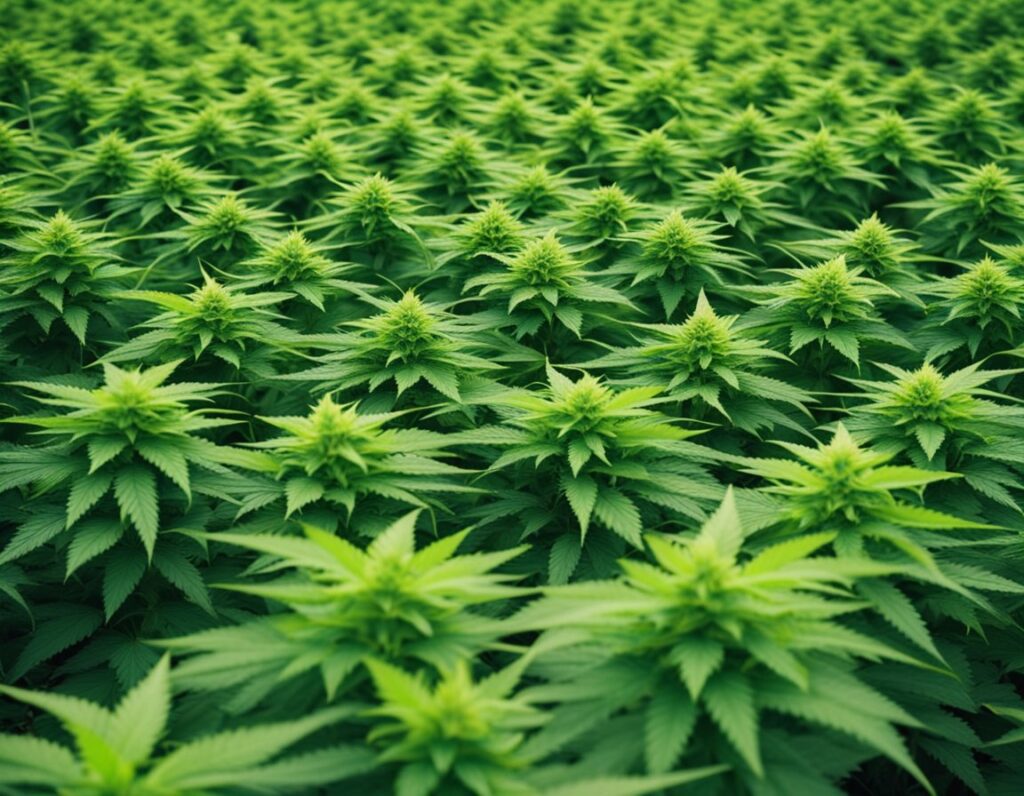
Understanding the legal framework surrounding cannabis in Canada is essential for anyone involved in cultivation, including when growing specific strains like French Cookies. The regulations are structured to ensure safe practices and compliance with national standards.
The Cannabis Act, which came into effect on October 17, 2018, establishes the legal foundation for cannabis production, distribution, and consumption in Canada. This legislation is designed to control how cannabis is handled at all stages, from cultivation to sale.
Key components include:
Farmers need to adhere to strict guidelines to ensure compliance and avoid fines. Regulations also address quality control and safety standards, contributing to the overall integrity of the cannabis market.
Health Canada is the federal department responsible for implementing the Cannabis Act. It oversees the regulation of cannabis products and ensures that strict safety and efficacy standards are met.
Health Canada’s responsibilities include:
Your compliance with Health Canada’s regulations is crucial in maintaining a lawful operation. Staying informed about updates and changes in regulations can aid in effective management of your cannabis cultivation activities.
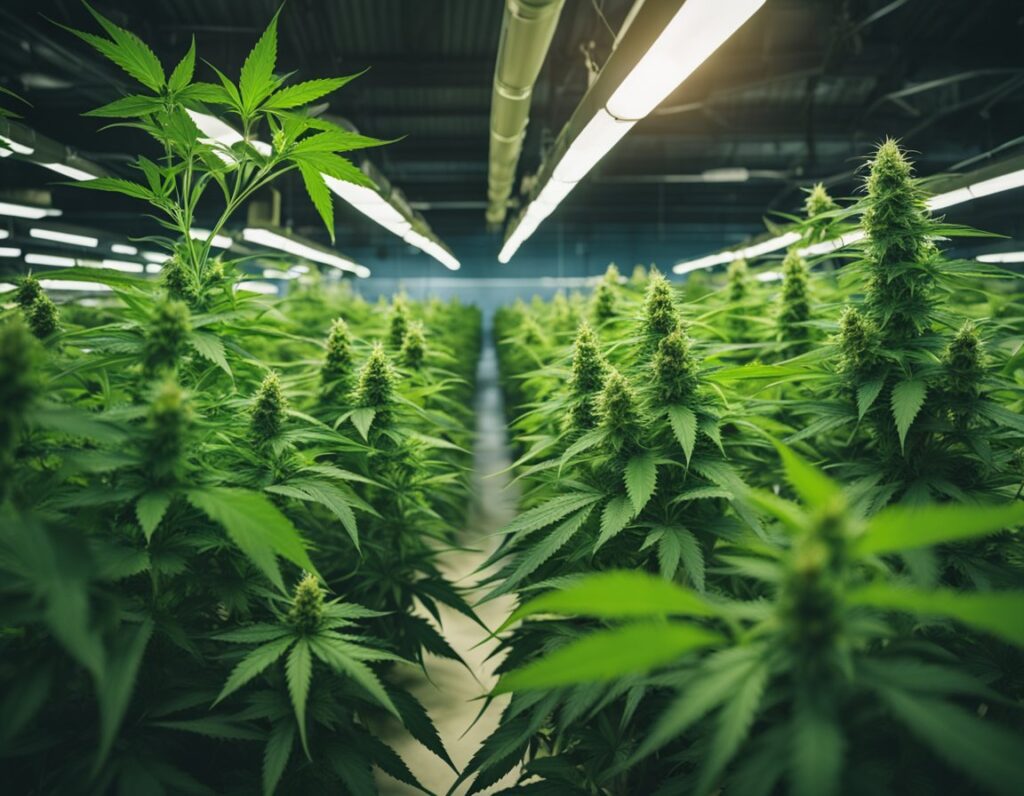
Understanding the regulations specific to cannabis cultivation is essential for any grower. This includes guidelines for industrial hemp, personal cultivation, and specific limits on the number of plants you can grow.
In Canada, industrial hemp is defined as cannabis with a THC concentration of 0.3% or lower. Those looking to cultivate hemp must comply with specific regulations set forth by the Cannabis Act.
You must obtain a license from Health Canada, which includes applying through the online portal and providing details about your growing location. Compliance with the Seeds Regulations is also necessary. Each seed must be certified, ensuring it meets the THC threshold. Proper record-keeping of your crop and adhering to guidelines for planting and harvesting are critical to maintaining legal standards while growing industrial hemp.
Under the Cannabis Act, adults can cultivate cannabis for personal use without a license. You can grow up to four plants per household. This limit applies to all cannabis plants, including French Cookies feminized seeds. To comply with local regulations, ensure your plants are not visible from public spaces. While you are permitted to grow for personal use, selling or distributing homegrown cannabis remains prohibited unless you possess the appropriate licenses. Each province may have additional restrictions, so be sure to understand local laws that might further define your cultivation practices.
The plant count is set at a maximum of four plants per household. This limit applies regardless of how many adults reside in your home. If you’re considering growing multiple strains, this total includes all cannabis plants.
Moreover, you must ensure that young seedlings are tracked to maintain the limit. Some provinces might impose stricter guidelines, so it’s advisable to verify with your local authorities. You are responsible for ensuring your plants meet the legal requirements regarding height, visibility, and overall health to remain compliant with cannabis cultivation regulations in Canada.
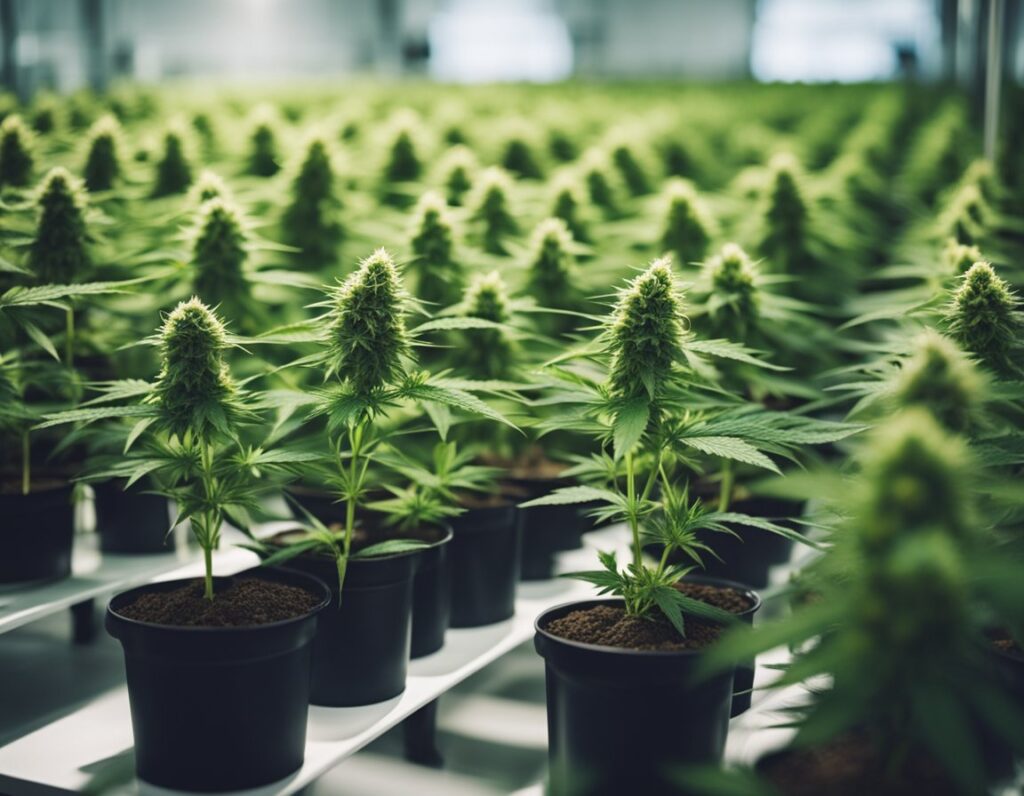
In the cannabis industry, adherence to regulations is critical for ensuring product safety and integrity. This includes stringent standards for packaging and labeling, comprehensive inspection protocols, and clear penalties for non-compliance. Legal cannabis growing requires careful attention to these guidelines to support a safe and compliant operation.
Packaging and labeling of cannabis products must meet specific regulatory requirements under the Cannabis Act. You are required to use the standardized cannabis symbol, which should appear on all product packaging. This symbol serves as a clear indicator of cannabis content and compliance with legal standards.
Labels must include a health warning message, informing consumers of the potential risks associated with cannabis use. Additionally, your packaging should not appeal to youth or contain any misleading information. Failing to comply with these standards can lead to serious repercussions, including product recalls and fines.
Health Canada oversees compliance through risk-based inspections of cannabis operations. These inspections are designed to ensure that you are following regulations concerning cultivation, packaging, and sales. Inspectors may examine your facilities, processes, and records to ensure adherence to the Cannabis Act and its regulations.
If an issue is identified, inspectors may issue non-compliant inspection reports that require immediate rectification. You may be subject to follow-up inspections to confirm that any noted deficiencies have been addressed. Robust protocols ensure that any breaches are promptly detected and managed, promoting accountability in the industry.
Penalties for non-compliance in the cannabis industry can be substantial and vary based on the severity of the violation. You may face fines, which can escalate depending on the number of offenses and their nature. Serious violations might result in the suspension or revocation of your license to cultivate or sell cannabis.
Additionally, repeat offenders may encounter increased scrutiny from law enforcement authorities. This can lead not only to regulatory sanctions but also to potential legal repercussions. Adhering to all compliance measures helps safeguard your business from such penalties and contributes to the legitimacy of the cannabis industry as a whole.
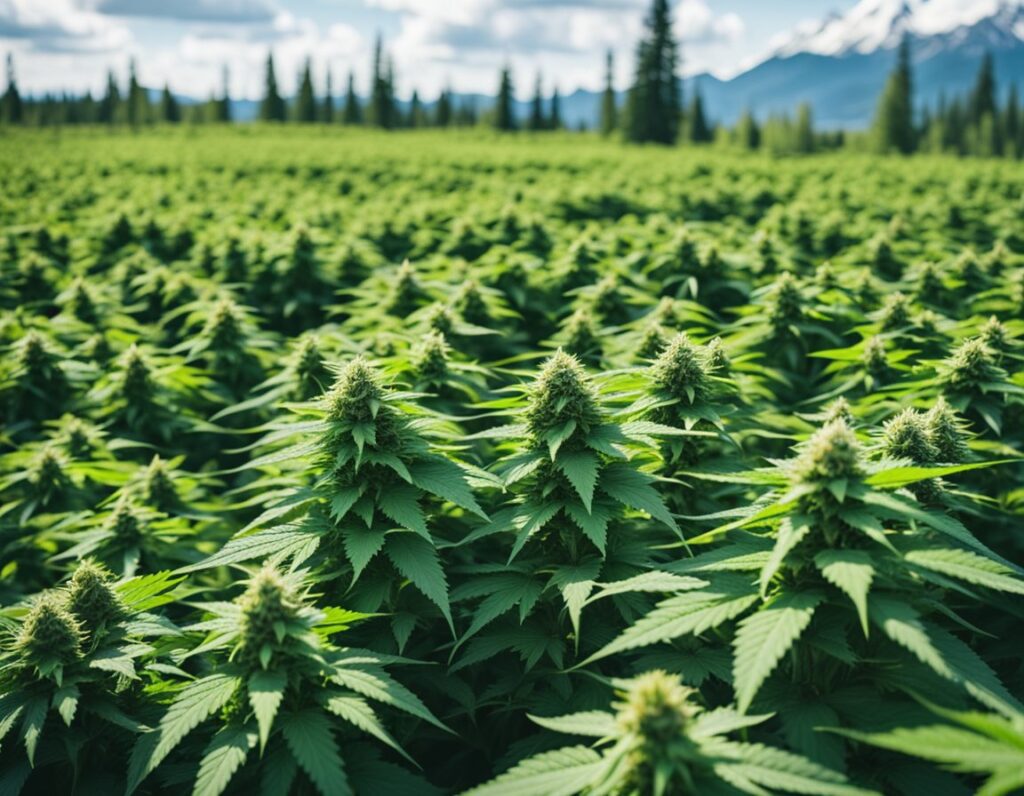
Each province and territory in Canada establishes its own cannabis regulations, leading to notable differences in rules and practices. Understanding these specific regulations is crucial for anyone interested in growing cannabis, including French Cookies.
Cannabis regulations can widely vary across Canada. For example:
Always check local regulations as they can change and may have unique requirements related to licensing, age restrictions, and public possession.
Home cultivation policies differ significantly among provinces and territories.
Make sure to review the specific home cultivation laws in your region to ensure compliance with local standards and requirements.
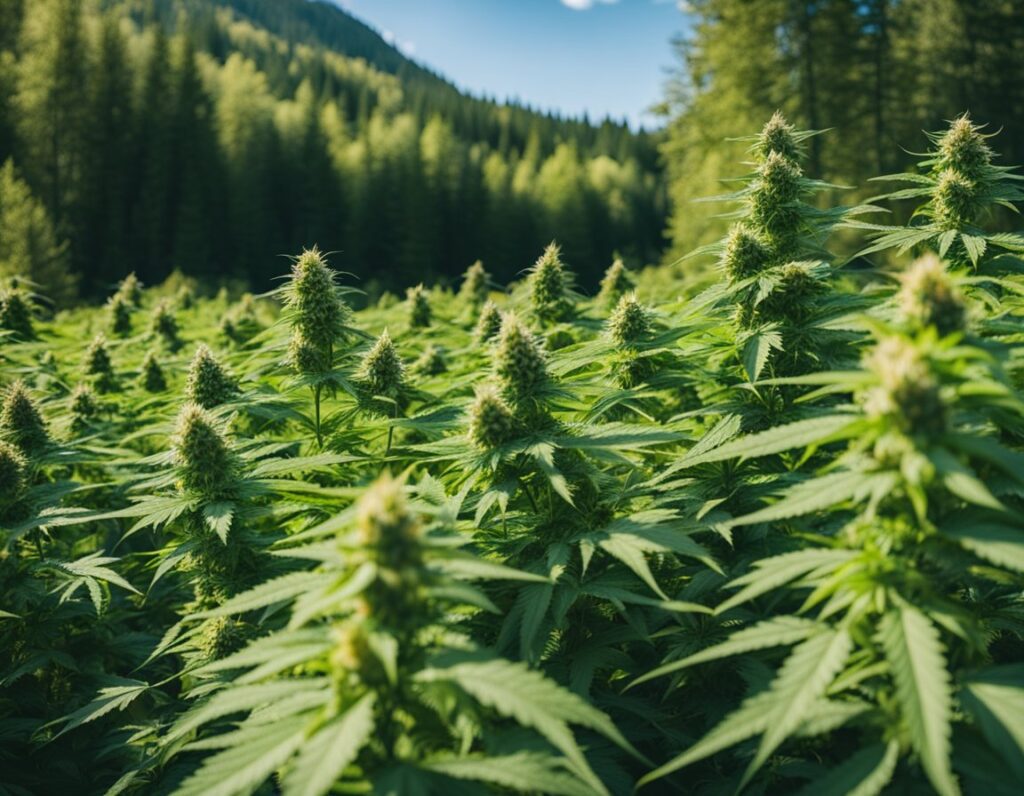
Understanding the regulations surrounding cannabis sales and distribution is crucial for ensuring compliance and promoting responsible practices. These guidelines outline the necessary steps involved in the lawful sale and distribution of cannabis products in Canada.
The distribution of cannabis is strictly regulated under the Cannabis Act. Only federally licensed individuals or organizations can distribute cannabis products. You must adhere to specific protocols when distributing controlled substances, including:
Failing to comply with these guidelines may result in severe penalties, including the revocation of your distribution license.
Licensed sellers and dispensaries play a vital role in the cannabis supply chain. You must purchase cannabis products from government-authorized retailers to ensure that you are receiving legal and quality products. Consider the following:
Adhering to these guidelines ensures that your sales operations run smoothly while contributing to responsible cannabis consumption.
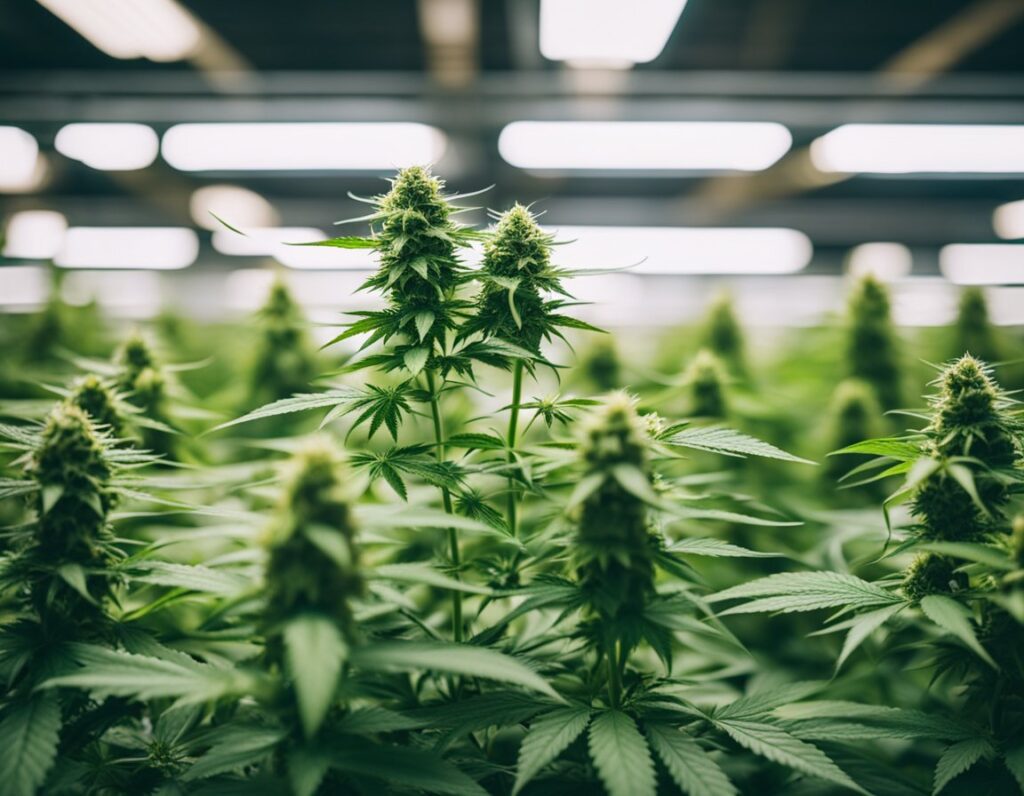
When considering cannabis products, particularly edibles, extracts, and topicals, health and safety are paramount. Understanding potential risks and ensuring that consumers are well-informed about these products is essential for responsible use.
Public education plays a crucial role in promoting safe cannabis consumption. You should be aware of the importance of accurate labeling on cannabis products, including THC content and serving sizes. Mislabeling can lead to unintended overconsumption, especially with edibles.
Education initiatives must focus on the safe storage of cannabis products to prevent accidental ingestion. Clear guidelines can help mitigate risks, particularly in households with children or pets. Regulatory bodies recommend educational campaigns that inform the public about responsible usage, including potential side effects and legal restrictions surrounding cannabis products.
Edible cannabis, extracts, and topicals pose unique challenges in regulation. Authorities have set restrictions on THC levels in edibles to ensure consumer safety. For example, cannabis edibles are typically capped at 10 mg of THC per serving in Canada to minimize risks associated with high-potency products.
Extracts also require careful regulation, as they can contain concentrated levels of THC. To protect consumers, manufacturers must adhere to strict production standards. For topicals, it’s essential that labels clearly outline active ingredients and usage instructions.
Incorporating strict regulations helps maintain quality and safety, ensuring that all cannabis products on the market meet established health standards. Your awareness of these regulations can guide your decisions when selecting cannabis products.
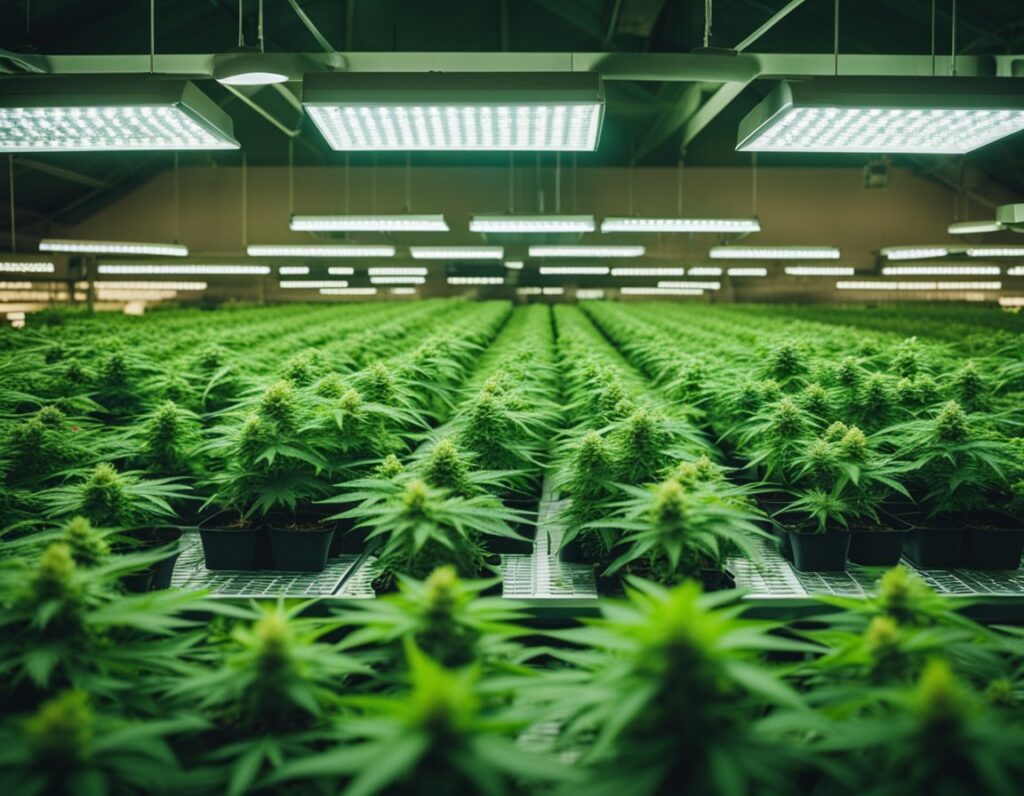
Understanding the specifics of cannabis seed cultivation and sale in Canada is crucial for ensuring compliance with legal standards. Regulations vary at both federal and provincial levels, impacting how you can grow and sell French Cookies seeds.
The cultivation of French Cookies seeds in Canada is governed by the Cannabis Act, which outlines strict regulations. You must be aware of the following key requirements:
It’s essential to familiarize yourself with both local and federal regulations to avoid penalties for non-compliance.
The market for French Cookies seeds is expanding as consumer interest grows. Here are some factors influencing this market:
Staying informed about market trends will help you make strategic decisions regarding cultivation and sales.
This section addresses key inquiries regarding cannabis cultivation, packaging, legal requirements, and penalties associated with growing the ‘French Cookies’ strain in Canada. Understanding these aspects is crucial for compliant and successful cultivation.
In Canada, individuals are allowed to cultivate up to four cannabis plants per household for personal use. This limit is specified under the Cannabis Act and applies regardless of the number of adults residing in the home.
Cannabis edibles in Canada are subject to strict regulations. They must not exceed 10 mg of THC per serving and require clear labeling that includes ingredients and allergen information. Additionally, they must comply with the packaging guidelines set forth by Health Canada.
Failure to comply with the Cannabis Act can result in significant penalties, including fines and potential criminal charges. The severity of the penalties often depends on the nature of the violation, such as exceeding plant limits or unauthorized sale of cannabis.
Only licensed producers under the Cannabis Act can legally cultivate the ‘French Cookies’ cannabis strain. To find authorized producers, you may refer to the official list available on the Government of Canada’s website.
Cannabis product packaging must adhere to specific regulations, including the use of child-resistant containers and clear labeling. Labels must contain health warnings, THC content, and a list of ingredients, ensuring compliance with Health Canada’s standards.
We ship and deliver world wide via USPS and various couriers.
We offer a wide range of secure and anonymous online payment options.
We care about you, our customer. Please contact us with any questions or concerns.
Find out more about the benefits of being a loyal and regular customer.
WE ARE EVERY GROWERS ONE STOP SHOP TO ACQUIRE PREMIUM CANNABIS SEEDS FOR SALE IN THE USA, CANADA AND AUSTRALIA

Farmers Lab Seeds 2024, | All Right Reserved
Seeds are sold as novelty items, souvenirs, and collectibles. They contain 0% THC. We encourage our customers to check the legislation in their Country, State, Province, and Municipality prior to purchasing items from our store. We do not provide growing information.
All seeds are sold as hemp, and lab tested under 0.3% THC. This product is not for use by or sale to persons under the age of 21. This product should be used only as directed on the label. It should not be used if you are pregnant or nursing. Consult with a physician before use if you have a serious medical condition or use prescription medications. A Doctor’s advice should be sought before using this and any supplemental dietary product. All trademarks and copyrights are property of their respective owners and are not affiliated with nor do they endorse this product.
These statements have not been evaluated by the FDA. This product is not intended to diagnose, treat, cure or prevent any disease. Individual weight loss results will vary. By using this site, you agree to follow the Privacy Policy and all Terms & Conditions printed on this site. Void Where Prohibited by Law.